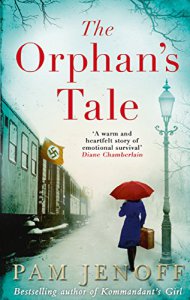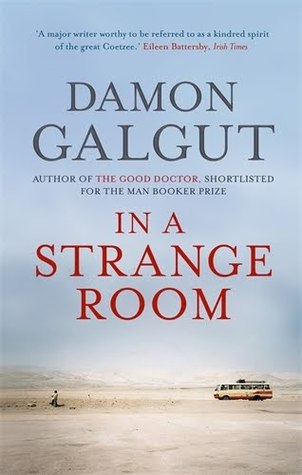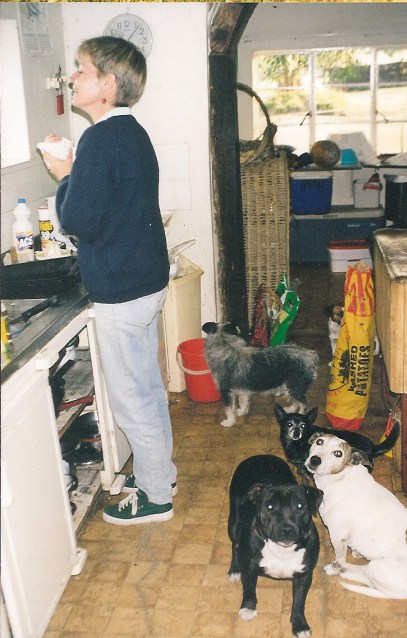 (New York Times Bestseller)
(New York Times Bestseller)
In Nazi-occupied Holland, seventeen-year-old Noa snatches a baby from a train bound for the concentration camps, fleeing with him into the snowy wilderness surrounding the train tracks.
Passing through the woods is a German circus, led by the heroic Herr Neuhoff. They agree to take in Noa and the baby, on one condition: to earn her keep, Noa must master the flying trapeze – under the tutorage of mysterious aerialist, Astrid.
Soaring high above the crowds, Noa and Astrid must learn to trust one another…or plummet. But with the threat of war closing in, loyalty can become the most dangerous trait of all.
In this novel Noa, a Dutch teenager who falls pregnant after a one-night stand with a German soldier, is disowned by her family and forced to give up her baby. She later comes across a train pulling a cattle truck full of Jewish babies en-route to a concentration camp, and impulsively takes a child – partly because of her horror at the situation and partly because of the loss of her own child which has left her feeling guilty and bereft. Noa gets lost in a snow storm and expects to die, but is rescued by a travelling circus where she makes a strange alliance with Astrid who has her own complicated history as a Jew who had once been married to a German officer. The premise of this story may seem far-fetched but, surprisingly, it is based on a number of true stories from the Second World War. In her notes at the end of the novel Ms Jenoff explains how she came across two stories in the Yad Vashem archives whilst doing research for her job as a diplomat for the U.S. State Department handling Holocaust issues in Poland. The first story was an account of a boxcar full of babies being sent to a concentration camp, the second was the story of a German circus which had sheltered Jews during the war (the owner, Adolf Althoff, was named Righteous Among The Nations by Yad Vashem). The author has taken these stories and woven them together to create a fictional circus with characters and incidents which give us a glimpse of the fear and hardship of those who put humanity above nationality during one of the darkest periods of the 20th century.
Using parallel narratives Ms Jenoff tells an inspiring story of two very different women brought together by war; characters who are believable because they are so flawed – capable of generosity and selflessness at times, and at other times quite reckless and selfish; women who are changed for the better by the tragedies they have to endure. I must admit that I found Noa’s almost instant love for Luc, and his for her, rather improbable; for me this is the weakest part of the novel but, setting that aside, it does help the author to explore one or two other themes connected to war and conflict, particularly how a family (in this case Luc’s) can be divided by their beliefs and by what they feel is the best way for them to protect the people around them. Noa also seemed rather reckless at times as she knowingly did things which could jeapordise the safety of others but, having said that, one must remember that the character is just seventeen years old and I’m sure that the characteristic traits of a teenager could not be totally surpressed even during a time of war! The focus of this novel is on the relationship of these two women rather than the war itself, and I find this to be one of the strengths of the book. The two women journey from jealousy and suspicion to a grudging respect, and then even love for each other.
Ms Jennoff has also shown a detailed knowledge of circus life in her writing. The atmosphere of the circus ring is vividly evoked – the excitement and glamour as seen from the perspective of the customers. Yet this is well contrasted with life behind the scenes – the shabbiness, the hard work, the lack of privacy, the monotony. The author also conveys how life became much more difficult for German circuses during the war as restrictions were placed on them by the Nazis, yet the determination that ‘the show must go on’ shines through, particularly as the circus brings a feeling of normality and escapism to the people of towns and villages living under German occupation.
‘The Orphan’s Tale’ has a well-structured plot which is well paced with the tension rising steadily to the ultimate climax in the big top. Interestingly the pivitol role is a baby who has no words to speak and no actions which influence the tale; the purpose of his character is, in my view, to be a symbol for all those who were victims of the Nazis. The child represents every Jew, or gypsy, or homosexual, or disabled person taken by the regime; it doesn’t really matter who he is or where he came from, the underlying current of this novel is that he should survive to tell the tale and to live a life denied to so many others. ‘The Orphan’s Tale’ is historical fiction with a focus on how ordinary people survive during times of conflict and upheaval rather than on the key events of the war. If you are fond of character driven historical novels you will probably enjoy this.
The Orphan’s Tale can be found on Amazon
You can find out more about Ms Jenoff here
You can find more of my Recommended Reads here
Advertisements Share this:






